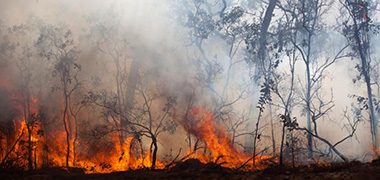
This role has a high level of AI exposure. While some human skills are required, many tasks could be automated or replaced by new technology.
Explore all careersA Climatologist studies climate changes, forecasts issues, and advises authorities, needing strong analytical and communication skills.
Get qualified to work as a Climatologist with a course recognised across Australia. Speak to a training provider to learn more.


In Australia, a full time Climatologist generally earns $1,550 per week ($80,600 annual salary) before tax. This is a median figure for full-time employees and should be considered a guide only. As you gain more experience you can expect a potentially higher salary than people who are new to the industry.
 Courses.com.au Team
Courses.com.au Team
This sector has seen strong employment growth over the last five years. There are currently 13,700 people working in this field in Australia and many of them specialise as a Climatologist. Climatologists may find work across all regions of Australia, particularly in larger towns and cities.
Source: Australian Government Labour Market Insights
 Courses.com.au Team
Courses.com.au Team
If you’re planning a career as a Climatologist, consider enrolling in a Master of Science (Applied Climate Science). This course will develop your knowledge of climate variability and explore strategies for managing changes to climate. You’ll also look at how climate change impacts on natural systems and human activities.
 Courses.com.au Team
Courses.com.au Team
Browse occupations related to Climatologist



If you are seeking to embark on a career as a Climatologist, it is essential to explore the various Climatologist courses in Darwin offered by reputable training providers. These courses provide in-depth knowledge and skills that are necessary for understanding climate patterns and their implications for the environment. Situated in the Northern Territory, Darwin's unique climatic conditions add a practical dimension to the study of climatology, making it an ideal location for aspiring climatologists to engage in their training.
Students considering Climatologist courses in Darwin will benefit from a curriculum that often integrates relevant fields of study, particularly science courses and meteorology. A strong foundation in these areas equips learners with the analytical skills required in various job roles within the climate sector. Courses may cover topics such as atmospheric science, climate modelling, and data analysis, preparing students for the dynamic challenges of a climatologist's career.
Additionally, many Climatologist courses in Darwin are delivered by Registered Training Organisations (RTOs) that are recognised within their respective industries. This ensures that the training meets established standards and that graduates are well-prepared for employment opportunities in climatology. Students will find that the skills gained through these courses are applicable in various sectors, including environmental consulting, government agencies, and research institutions.
For those interested in expanding their career options, exploring related job roles such as Meteorologist may be a valuable path. Both climatologists and meteorologists share a common goal of understanding and interpreting weather and climate data, albeit through slightly different lenses. The education and skills acquired through climatologist courses can provide a strong foundation for a successful career in meteorology as well.